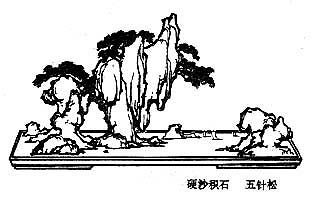Lun Yu 
 – Les Entretiens de Confucius
– Les Entretiens de Confucius
Le Maître échange propos, anecdotes, brèves paraboles et maximes avec ses disciples. Tr. Couvreur (fr), Legge (en) et Lau (en).
Lunyu VI. 30. (150)
Tseu koung dit : « Que faut-il penser de celui qui prodiguerait ses bienfaits parmi le peuple et pourrait aider la multitude ? Pourrait-on dire qu'il est pleinement humain ? » Le Maître répondit : « Aider la multitude ? mais c'est être un saint ! Iao et Chouenn eux-mêmes avaient la douleur de ne pouvoir le faire. La vertu d'humanité, c'est élever autrui comme on souhaiterait l'être soi-même ; c'est le faire parvenir là où on le voudrait soi-même. Qui est capable de s'en faire le modèle offre la recette de cette vertu. »
Couvreur VI.28.
The true nature and art of virtue.
1. Tsze-kung said, "Suppose the case of a man extensively conferring benefits on the people, and able to assist all, what would you say of him? Might he be called perfectly virtuous?" The Master said, "Why speak only of virtue in connection with him? Must he not have the qualities of a sage? Even Yâo and Shun were still solicitous about this.
2. "Now the man of perfect virtue, wishing to be established himself, seeks also to establish others; wishing to be enlarged himself, he seeks also to enlarge others.
3. "To be able to judge of others by what is nigh in ourselves;– this may be called the art of virtue."
Legge VI.28.
Tzu-kung said, 'If there were a man who gave extensively to the common people and brought help to the multitude, what would you think of him? Could he be called benevolent?'
The Master said, 'It is no longer a matter of benevolence with such a man. If you must describe him, "sage" is, perhaps, the right word. Even Yao and Shun would have found it difficult to accomplish as much. Now, on the other hand, a benevolent man help others to take their stand in so far as he himself wishes to take his stand, and gets others there in so far as he himself wishes to get there. The ability to take as analogy what is near at hand can be called the method of benevolence.'
Lau [6:30]
b. Nabi menjawab, "Itu bukan hanya perbuatan yang berperi Cinta Kasih ; bahkan seorang Nabilah dia. Dalam hal ini, bahkan Raja Yao dan Shun masih merasa khawatir belum dapat menjalankannya ?"
c. "Seorang yang berperi Cinta Kasih ingin dapat tegak, maka berusaha agar orang lainpun tegak ; ia ingin maju, maka berusaha agar orang lainpun maju".
d. "Yang dapat memperlakukan orang lain dengan contoh yang dekat (diri sendiri), sudah cukup untuk dinamai seorang yang berperi Cinta Kasih".

Les Entretiens de Confucius – Lun Yu VI. 30. (150) – Chinois off/on – Français/English
Alias the Lunyu, the Lun Yü, the Analects, les Entretiens du maître avec ses disciples.
Le Canon des Poèmes, Les Entretiens, La Grande Étude, Le Juste Milieu, Les Trois Caractères, Le Livre des Mutations, De la Voie et la Vertu, 300 poèmes Tang, L'Art de la guerre, Trente-six stratagèmes
Bienvenue, aide, notes, introduction, table.
Index – Contact – Haut de page























